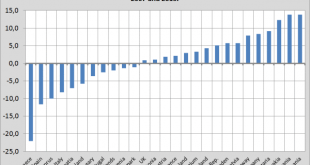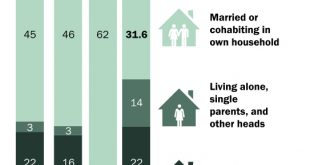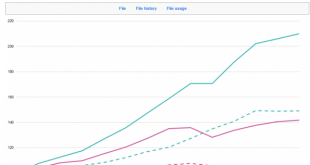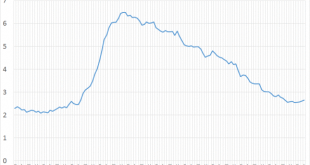Is total German consumption really growing that slowly? In a tweet, Erwan Mahé (@ThalersCorner) expressed his surprise and confusion about the slow increase of private consumer expenditure in Germany, despite robust job growth and relatively low unemployment (and sizeable increases of real wages!). I do share his surprise and confusion, but the world starts to make more sense when we do not just look at household expenditure but at ‘Actual Individual Consumption’ (AIC). This broader...
Read More »Cecchetti and Kharroubi on the non-neutrality of money
Is money ‘neutral’? Is it just a veil over ‘real’ transactions? Or does it affect the level and composition of ‘real’ expenditure? Stephen Cecchetti and Enisse Kharroubi recently published an article which in a very net way shows that money (and credit) is non-neutral. It’s not a veil. It’s part of the essence of our economy. The abstract: “We examine the negative relationship between the rate of growth of the financial sector and the rate of productivity growth. Using a panel of 20...
Read More »The Trump supporters in econ departments and central banks everywhere
from Dean Baker Eduardo Porter used his NYT column this week to remind us that we have seen people like Donald Trump before and it didn’t turn out well. Porter is of course right, but it is worth carrying the argument a bit further. Hitler came to power following the devastating peace terms that the allies imposed on Germany following World War I. This lead to first the hyper-inflation that we will continue to hear about until the end of time, and then austerity and high unemployment that...
Read More »Home economics
from David Ruccio According to a new report from the Pew Research Center, in 2014, for the first time in more than 130 years, adults aged 18 to 34 were more likely to be living in their parents’ home than they were to be living with a spouse or partner in their own household or in any other living arrangement. Dating back to 1880, the most common living arrangement among young adults has been living with a romantic partner, whether a spouse or a significant other. This type of arrangement...
Read More »The naiveté of science as the history of Ideas
from Robert Locke I am constantly perplexed by the way people on this blog handle the development of science as a history of ideas. I find this view particularly expressed in the exchange of opinions Asad Zaman provokes in his posts and comments to which others respond. I have noted that trying to explain the development of science without going into the political, social, and economic environment in which science exists, will not bear much explanatory fruit. Here are three examples of...
Read More »GDP-growth and the environmental economy
Branko Milanovic gets philosophical about productive and unproductive labour. Is a dentist productive? A soldier? A lobbyist? Seen from the angle of national accounting such questions, important as they are, are beside the point as these accounts aim to gauge total income and all labour which yields an income (wages, profits, whatever) is considered to be productive. As it enables people to gain an income… People work for the money, even when they are protecting the environment. Which...
Read More »Involuntary unemployment in the USA
Donald Trump is right and wrong about unemployment. He’s right that 20% unemployment is a f*cking shame and calls for action. A fact not acknowledged by (neoclassical) economists, who for Europe calculate ‘equilibrium’ unemployment (NAIRU, see this post by Lars Syll) in countries like Spain to be higher than 20%.These official (!) estimates are beyond ridiculous! Small wonder that people flock to politicians like Trump. Trump is however wrong to state that USA unemployment is 20%....
Read More » Real-World Economics Review
Real-World Economics Review




